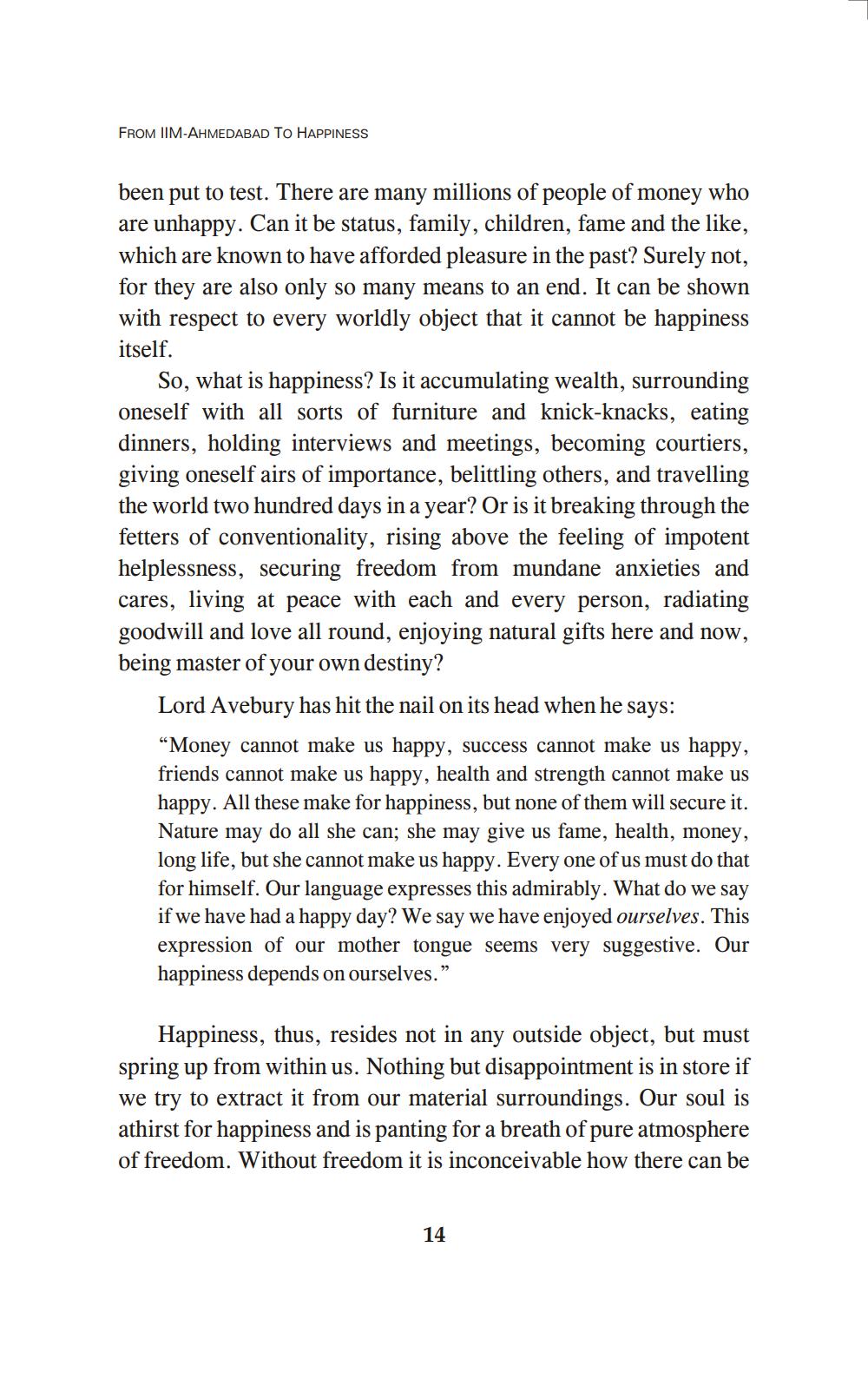________________
FROM IIM-AHMEDABAD TO HAPPINESS
been put to test. There are many millions of people of money who are unhappy. Can it be status, family, children, fame and the like, which are known to have afforded pleasure in the past? Surely not, for they are also only so many means to an end. It can be shown with respect to every worldly object that it cannot be happiness itself.
So, what is happiness? Is it accumulating wealth, surrounding oneself with all sorts of furniture and knick-knacks, eating dinners, holding interviews and meetings, becoming courtiers, giving oneself airs of importance, belittling others, and travelling the world two hundred days in a year? Or is it breaking through the fetters of conventionality, rising above the feeling of impotent helplessness, securing freedom from mundane anxieties and cares, living at peace with each and every person, radiating goodwill and love all round, enjoying natural gifts here and now, being master of your own destiny?
Lord Avebury has hit the nail on its head when he says:
"Money cannot make us happy, success cannot make us happy, friends cannot make us happy, health and strength cannot make us happy. All these make for happiness, but none of them will secure it. Nature may do all she can; she may give us fame, health, money, long life, but she cannot make us happy. Every one of us must do that for himself. Our language expresses this admirably. What do we say if we have had a happy day? We say we have enjoyed ourselves. This expression of our mother tongue seems very suggestive. Our happiness depends on ourselves.”
Happiness, thus, resides not in any outside object, but must spring up from within us. Nothing but disappointment is in store if we try to extract it from our material surroundings. Our soul is athirst for happiness and is panting for a breath of pure atmosphere of freedom. Without freedom it is inconceivable how there can be
14




